| From New Zealand | |
| Peter Dyer is a machinist and freelance journalist and photographer. He and his wife moved to New Zealand from the US in 2004. They are dual NZ/US citizens. Peter is the grandson of I. G. Dyer (1903-1993) who wrote about Fairville, Missouri for the 1965 Saline County History. Dyer Men | |
|
|
| Continuing to Build the Case as published in The Winters Express 1 November 2006 |
| Even though there is a fast-growing grass roots movement to impeach President Bush there has been predictably little response in the Republican-controlled Congress. If, however, the Democrats gain control of Congress as a result of the upcoming midterm elections, a congressional impeachment effort will become considerably more likely. |
| Two recent events may add momentum to this drive: the passage and signing into law of S. 3930, the Military Commissions Act (M.C.A.); and the publication by Lancet, one of the world's most prestigious medical journals, of a report based on a peer-reviewed survey of deaths in Iraq. The survey concludes that, at a minimum, 392,000 Iraqi civilians have died as a result of the war. |
| One of the most prominent features of the Military Commissions Act (M.C.A.) is Section 7(e) which denies the right of habeas corpus - the constitutional protection against illegal imprisonment. Those of us who are American citizens may be personally untroubled by this, assuming that our status guarantees protection by our government of our inalienable rights. But the M.C.A. grants jurisdiction of military commissions not only over "alien unlawful enemy combatants" but over "unlawful enemy combatants" as well. Moreover, this particular status is to be determined by a "...tribunal established under the authority of the President or the Secretary of Defense." (Sec. 948d(c)). |
| The M.C.A. (Section 950v (26)) also specifically extends jurisdiction of military tribunals to "any person... who, in breach of an allegiance or duty to the United states knowingly and intentionally aids an enemy of the United States..." Since aliens owe no allegiance to the United States this means that the M.C.A. refers to all of us, aliens and citizens alike. Until and if the courts overturn this abominable legislation we are all potentially subject to the jurisidiction of a military commission. And exactly how "inalienable" our rights such as habeas corpus really are will depend on how we may be classified by a tribunal appointed by George W. Bush or by Donald Rumsfeld. |
| The shocking results of the Lancet study tell us that the best estimate of civilian deaths due to the war is between 392,000 and 942,000. It estimates that 31% of these deaths occurred at the hands of Americans. In other words we have managed to kill well over 100,000 civilians in a country which never harmed us nor threatened to harm us. This, of course, is in addition to the deaths of over 2800 of our fellow citizens. |
| President Bush and his supporters have dismissed the Lancet report as "not credible". But as the editor of Lancet, Richard Horton says, the methodology used in the study is "... tried and tested. It has been the basis for mortality estimates in war zones such as Darfur and the Congo. Interestingly, when we report figures from these countries politicians do not challenge them.... When it comes to Iraq the story is different." |
| David Lindorff, author and prominent investigative journalist and Barbara Olshanksy, attorney and deputy director of the Center for Constitutional Rights have written a book which could show the way to provide a measure of accountablility for these outrages: The Case for Impeachment: the Legal Argument for Removing President George W. Bush from Office. (Thomas Dunne Books, St. Martin's Press, New York) The authors' purpose is "...to try to lay out for examination the vast range of presidential crimes, abuses of power, and threats to the Constitution and to the Republic." |
| The authors have collected and documented in methodical and convincing detail some of the president's most prominent impeachable offenses: lying to start an illegal war; the arrest and detention without charge of American citizens; violation of international treaties including the Geneva conventions and the conventions against torture; willfully ignoring or violating acts of Congress by issuing hundreds of "signing statements"; violating the Foreign Intelligence Surveillance Act and the Fourth Amendment to the Constitution and others. These offenses are disturbing enough individually, but in their aggregate they demonstrate an appalling and outrageous pattern of contemptuous disregard for national and international law on the part of the very person charged with preserving, protecting and defending the law. |
| The authors also provide a valuable historical and legal perspective of the impeachment process and make a compelling case for the impeachment, as well, of Vice President Cheney, Secretary of Defense Rumsfeld, Secretary of State Rice and Attorney General Gonzales. Although today impeachment still seems unlikely, if that changes, then The Case for Impeachment will be a valuable guide. And in the end it may very well prove to be prophetic. |
|
| Immigrants as published in The Tribune 14 January 2007 | | "What time is it there?" | | This may well be the question I hear most often when on the phone to the old home overseas. It often comes even before "How are you?" or "How's the weather?" | | My wife and I are from the U.S., but I'd guess that immigrants from just about anywhere else hear the same question in a variety of languages. I'd also guess that, like me, a great many immigrants can always tell you what time it is in the "old country". | | Most of us who have shifted here from abroad are completely committed to life in New Zealand, if for no other reason because we had to do so much and come so far just to get here and to be allowed to stay. But no matter how much we love New Zealand we will never be able to change the fact that we're from somewhere else. This is a fundamental duality in our lives which we are reminded of every day in countless ways, large and small. | | For example, since there is really no significant difference in the way Kiwis and Yanks dress, nobody here has ever taken a look at me and asked me where I'm from. As soon as I start talking, though, I am marked as a foreigner. (Curiously, even though I have no trace whatever of a Canadian accent, many Kiwis ask me if I'm Canadian.) And although the fact that I am a native speaker of English, as opposed to Mandarin or Arabic, undoubtedly makes settling into our new country that much easier, the differences between Kiwi English and American English are still enough to constantly remind me that I wasn't born here. | | If I heard someone say: "One of my mates shouted us a holiday at a flash bach out in the wops but it all turned to custard. I hired a ute from a dodgy bugger and I wish I'd had a squiz under the bonnet because in the late arvo she threw a rod a few k's down a metal road, eh," I'd understand instantly. However I would still be aware that this is not my native tongue! | | We immigrants, especially those of us from larger countries, marvel at some things which Kiwis take for granted. One is the accessibility of New Zealand government officials. I had been here less than a year when I had the opportunity to meet and to have a brief chat with Prime Minister Helen Clark. She was visiting my workplace and it was all very casual. There was a reception and I simply walked up to her, waited a minute for my turn, and introduced myself. | | Access to the Head of State in my native land would have either cost me tens of thousands of dollars or would have been a result of my having been, for some reason, preselected well in advance by a team of presidential publicity handlers. In either case I would have been subjected to a security clearance which would have made boarding an American airplane seem quick and effortless by comparison. A spontaneous, unmonitored and low key encounter such as the one I had with Ms. Clark would have been absolutely out of the question. | | Clean, fresh, sweet smelling air is something which most residents of the Manawatu seem to take for granted but which those of us from large industrialized countries never will. Knowing that the cool, grey, wet and windy weather keeps the air clean makes it much more bearable. The only way to fully appreciate this is to have lived in and breathed smog for years. | | Plenty of familiar everyday items still occasionally remind me that I'm in a new country: heated towel racks; dual flush toilets, electrical switches at the power points ("plugs" in the U.S.), down for "on" and up for "off". Walking and driving on the left come naturally now, but the right hand steering wheel still occasionally looks wrong. | | Perhaps the ultimate reminder that we live in a place different to where we were born will occur later this year when we become New Zealand citizens and affirm our allegiance to the Queen. |
|
| Interview with Tamara Osborne as published in The Tribune 17 December 2006 | | How would a military coup affect the study of native frogs? | | Tamara Osborne is about to find out. | | Ms. Osborne, 25, a Fiji citizen and a temporary resident of Palmerston North, is a Ph.D. candidate at the University of the South Pacific, in Suva, Fiji's capital. Pursuing her doctorate in Conservation Genetics, she will focus her research on endemic Fijian frogs. She is spending the first three months of her doctoral program working with fellow researchers at Massey University's Allan Wilson Centre. | | When Ms. Osborne left Fiji over two and a half months ago, Prime Minister Laisenia Qarase presided over a democratically elected government. When Ms. Osborne returns to Fiji in less than two weeks, both Mr. Qarase and the democratically elected government will have been replaced -- a result of the early December coup engineered by Commodore Josaia Voreqe "Frank" Bainimarama. | | Her academic plans include exploring "ways of protecting natural diversity". Recent events back home, however, will almost certainly force a delay in this and other plans for the near future. In addition, she believes that the coup is likely to have profound long term affects on her life, and the lives of her family, friends and fellow Fijians. | | Most immediately, they will feel the result of the international suspension of aid to Fiji. "If they're going to cut aid...some of that funding is put into the university. So it will definitely have an effect on my community...and it will affect the economy and therefore it will affect my family." | | For Ms. Osborne, one of the more unfortunate results of the coup and subsequent international sanctions will be their effect on younger Fijians. | | "One of the things that I feel very sad about...is the impact that this will have on the younger generation who've just left high school and are looking for opportunities to travel overseas, to study overseas. Basically they will have very limited opportunities to do so." | | In addition, the coup and the sanctions are likely to have the opposite effect on older skilled and educated Fijians: | | "Another problem...is that we will get a lot of brain drain -- skilled workers leaving the country to go and study, work overseas, basically migrate to other countries, especially New Zealand. That's going to have a long term effect on Fiji's economy. | | For Ms. Osborne, "Fiji politics tend to be fairly intricate." In this situation there is no black and white. Instead "there are shades of grey in the situation, many many shades of gray." | | "It's really important that people in New Zealand realize that there is a lot more to this story than meets the eye, and not to make personal judgments about the situation without realizing that they may not be getting the complete picture." | | "The problem is that people still tend to make snap judgments and that's a problem when the people making these judgments are the ones making policy decisions." |
|
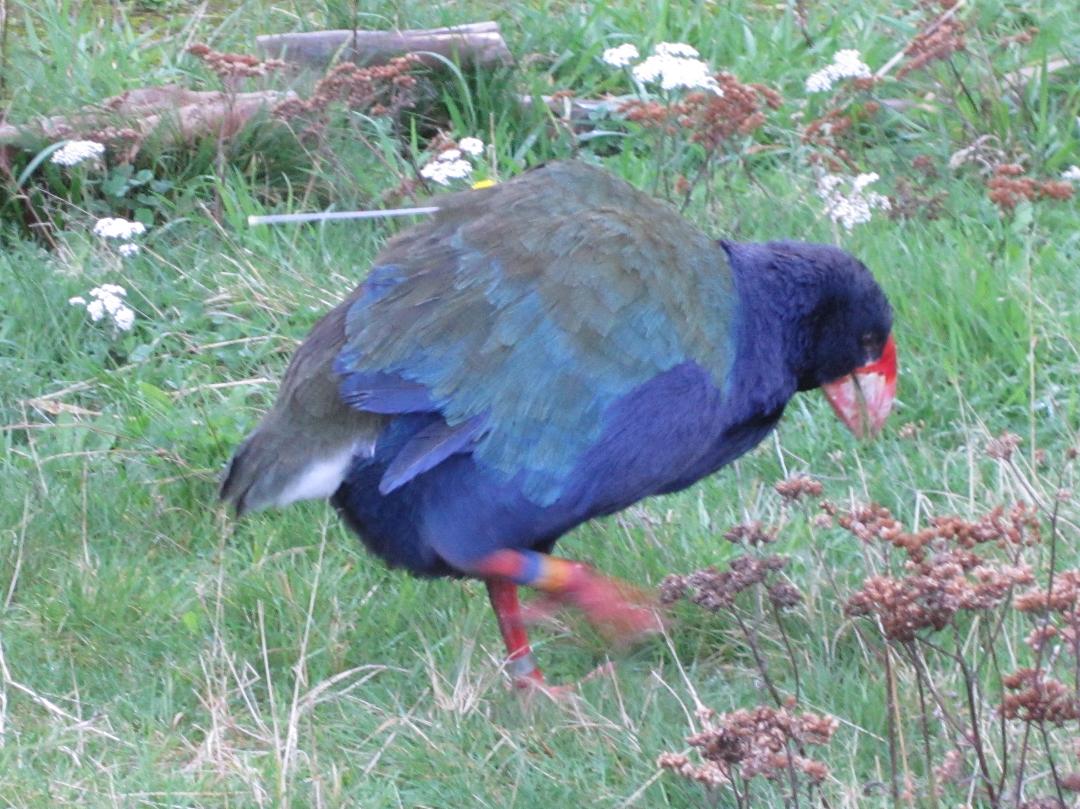
TAKAHE | | The takahe is an extremely endangered NZ native bird which survives only in several sanctuaries. Cathy took the photo in a predator free bush area in Wellington. In the 1930s, Jeffrey Orbell made world headlines when he discovered a few in the remote Southland. The reason for the headlines was that for decades this bird had been presumed extinct. You may notice what looks like a dart protruding from the takahe's back. This is a receiver which allows tracking of the bird. They all have them in this particular place. An acquaintance Cathy ran into the day she took the photo theorizes that these birds are actually remote-controlled robots. PD |
|
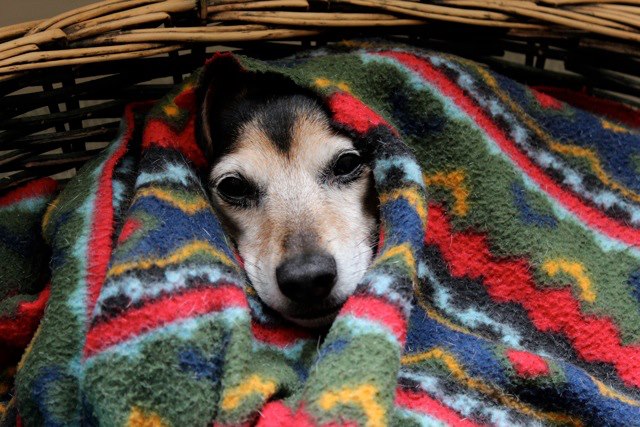
TERRIER | | Why terriers chew holes in their blankets. PD on Facebook |
|
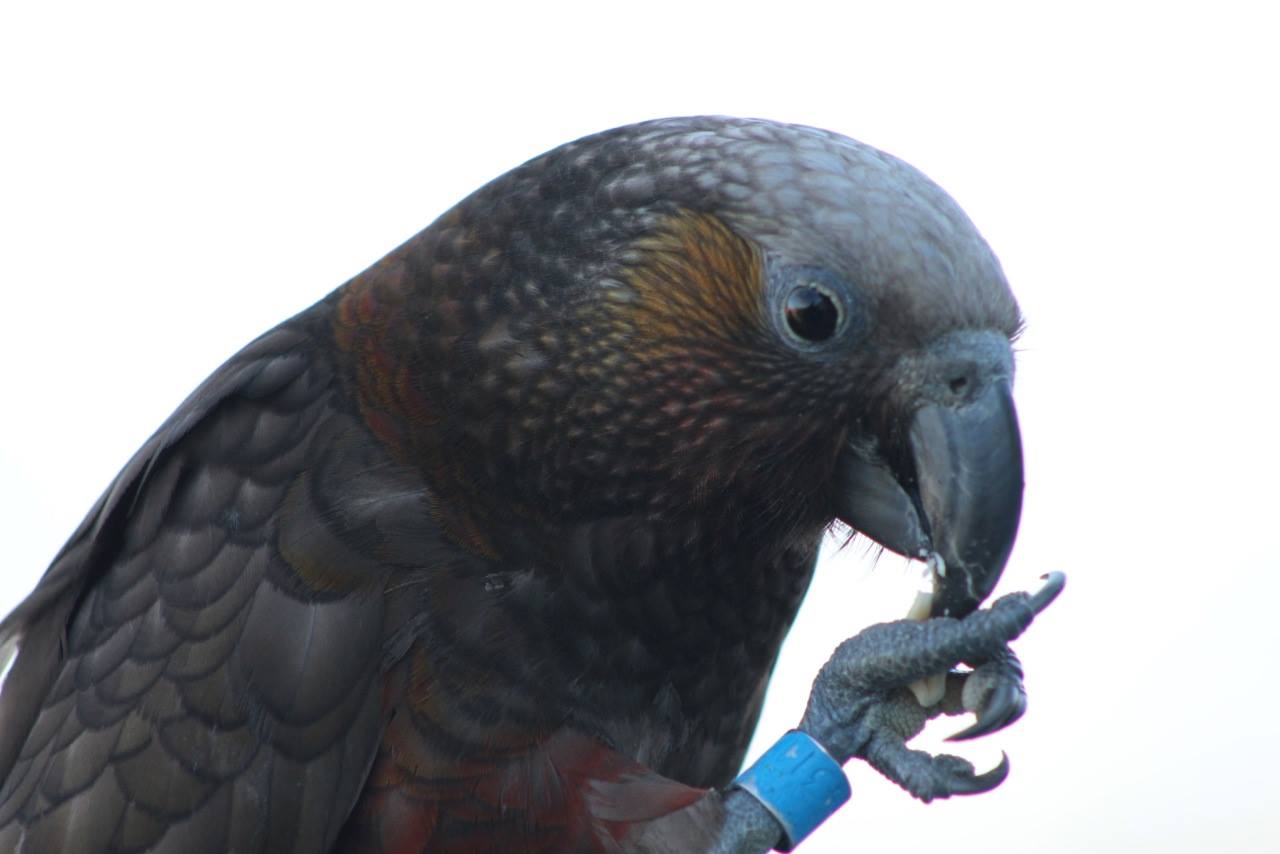
KAKA | | Easily pleased: yesterday a kaka enjoyed a Christmas treat. PD on FaceBook |
|
|
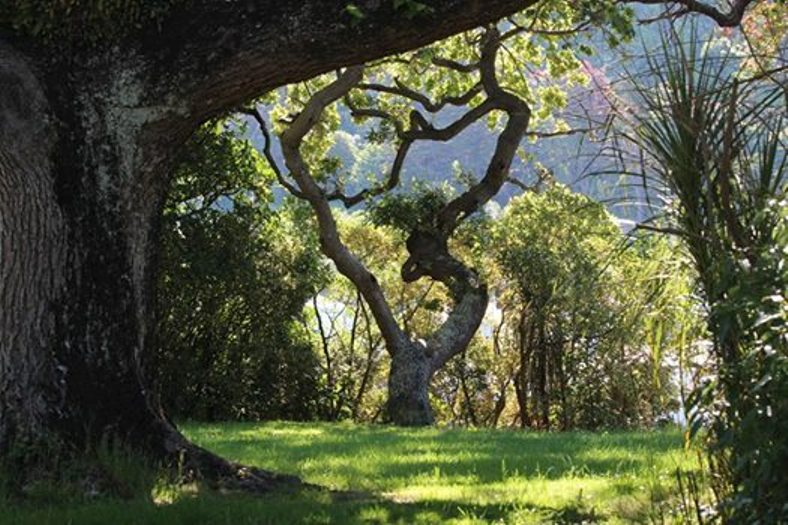
MANSFIELD PARK, WELLINGTON | | "Middle earthian," comments an admirer. PD on Facebook |
|
|
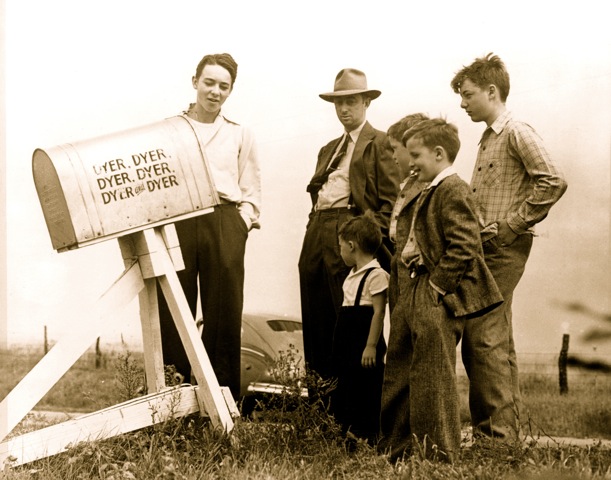
DYER MEN | | At Fairville MO ca 1946-47 |
|
|




